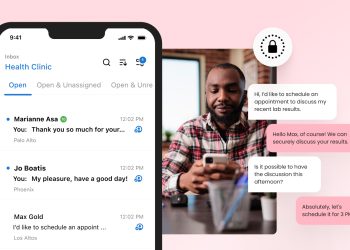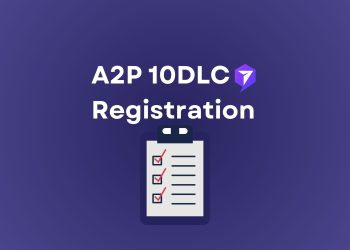The world of politics is continuously evolving, and polling is one of the most critical components of a successful campaign. Polling is the process of gathering data from a particular group of individuals to understand their opinions and beliefs about a particular topic.
Political polling is essential for candidates as it helps them understand the voters’ opinions and tailor their messages accordingly. In today’s digital age, SMS surveys have become a powerful tool for political polling. In this blog post, we will explore the power of SMS surveys for political polling.
Convenience and Accessibility
One of the main reasons why SMS surveys have become a powerful tool for political polling is their convenience and accessibility. Most people have access to mobile phones and can quickly respond to SMS surveys. Unlike traditional polling methods, such as phone or door-to-door polling, SMS surveys do not require individuals to be in a particular location or answer a call. SMS surveys can be sent anytime, and individuals can respond at convenience. This accessibility ensures a higher response rate and a more accurate population representation.
Moreover, SMS surveys allow for anonymity, encouraging individuals to participate without fear of being judged or identified. In many cases, individuals may hesitate to answer phone surveys or door-to-door polls because they do not want to share their opinions with strangers or fear backlash from sharing their political beliefs. With SMS surveys, individuals can answer the questions honestly without fear of judgment, making the results more reliable.
Cost-Effective
SMS surveys are cost-effective compared to traditional polling methods such as phone or door-to-door polling. SMS surveys can be sent at a fraction of the cost of traditional polling methods, which makes it an ideal choice for political campaigns with limited budgets. In addition, SMS surveys can be sent to many people simultaneously, saving time and money.
For political campaigns, cost-effectiveness is crucial as it allows them to allocate resources to other areas, such as advertising or canvassing. With SMS surveys, campaigns can reach many voters cheaply, making it an efficient and cost-effective way to collect data.
Real-time Results
SMS surveys provide real-time results, allowing campaigns to make quick decisions based on the feedback received. Traditional polling methods, such as phone or door-to-door polling, can take days or weeks to collect and analyze data. With SMS surveys, campaigns can receive results instantly, allowing them to adjust their messaging or strategies as needed.
Real-time results are essential for political campaigns, especially during the election season. With SMS surveys, campaigns can quickly identify significant trends or issues to voters and adjust their messaging to address those concerns. Additionally, real-time results can help campaigns track the effectiveness of their messaging and make adjustments as needed, leading to more successful campaigns.
Higher Response Rates
SMS surveys have higher response rates compared to traditional polling methods. The average response rate for SMS surveys is around 30%, while phone surveys have a response rate of around 10%. The higher response rates make SMS surveys an ideal choice for political campaigns that require a large sample size to make informed decisions.
Higher response rates yield more accurate results and a more representative population sample. With higher response rates, political campaigns can collect more data and make more informed decisions. Higher response rates can also help campaigns identify significant trends or issues to voters, leading to more successful campaigns.
Better Data Quality
SMS surveys provide better data quality compared to traditional polling methods. SMS surveys are less prone to interviewer or response bias errors. In addition, SMS surveys are standardized, ensuring that each respondent receives the same questions in the same format, leading to more consistent and accurate data.
Moreover, SMS surveys provide an opportunity for data verification. With SMS surveys, campaigns can ask follow-up questions or clarify responses, ensuring the data collected is accurate and reliable. This verification process can help campaigns identify and correct errors in the data, leading to more reliable and accurate results.
Increased Engagement
SMS surveys can increase engagement with voters and create a more interactive experience. Political campaigns can use SMS surveys to inform voters about the campaign or specific issues, increasing engagement and creating a more informed electorate.
Moreover, campaigns can use SMS surveys to encourage voter participation by reminding them of upcoming elections or polling dates. These reminders can help increase voter turnout and ensure more voices are heard in the democratic process.
Targeted Sampling
SMS surveys allow for targeted sampling, which can help campaigns reach specific demographics or groups. Political campaigns can use SMS surveys to target specific age groups, income levels, or geographic locations, ensuring that their data is representative of the population they are trying to reach.
Targeted sampling can help campaigns tailor their messaging to specific groups and create a more effective campaign strategy. For example, if a campaign identifies that a specific demographic is concerned about a particular issue, it can adjust its messaging to address those concerns, leading to more successful campaigns.
Conclusion
SMS surveys have become a powerful tool for political polling, offering convenience, cost-effectiveness, real-time results, higher response rates, better data quality, increased engagement, and targeted sampling.
Political campaigns can use SMS surveys to collect data from a larger sample size and make more informed decisions. With the benefits of SMS surveys, political campaigns can create more effective strategies, reach more voters, and ultimately succeed in their goals.














